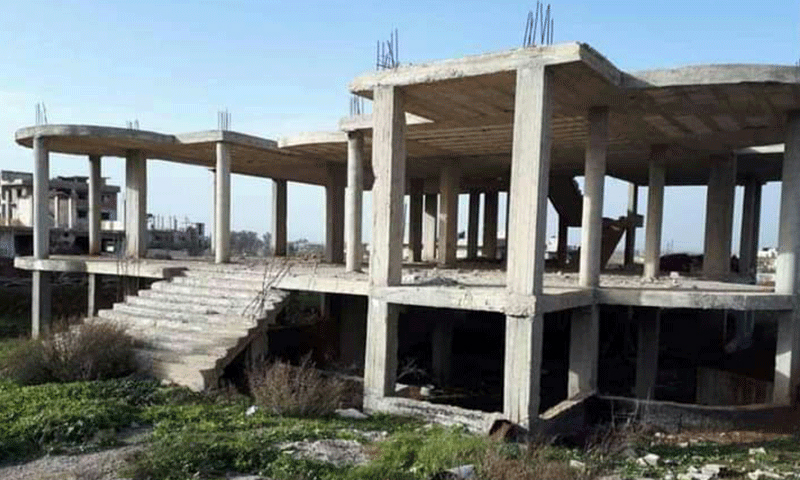



Enab Baladi – Daraa
“I was thoroughly investigated as if I had committed a felony. The security assistant requested information about all of my relatives, all because I wanted to buy a piece of land and register it under my name in the cadastral record.”
Fifty-two-year-old Abdul Rahman recounted to Enab Baladi how the Political Security Branch had called him for interrogation three times lately. Each time, the security assistant questioned him about personal details of himself and his relatives, of whom some died or went missing, or left the small town of Muzayrib in Daraa’s eastern countryside and took refuge in European and Western countries.
The Syrian regime security branches are meddling in the smallest details of the lives of the residents of Daraa governorate in southern Syria, private property selling transactions included. Property owners and buyers are requested to obtain a security clearance after being interrogated repeatedly by the regime’s security branches.
In case the real estate owner or buyer was denied clearance for whatever security reasons, the property selling procedures will be halted even if the process was in line with all legal requirements regarding property transfer contracts.
The security check-up phase starts after completing legal proceedings of property transfer transactions, and parties to the selling contract may be granted or denied a security clearance.
Thirty-three-year-old Ali, a resident of Daraa city who was exposed to the hardship of having to obtain a security clearance to undertake property transfer proceedings, told Enab Baladi about the established procedures of security check-ups. He said the person in question must submit a security approval application along with a real estate registration statement and a transcript of a civil status record to be studied by the regime’s security branches.
The regime’s political and military Security branches investigate the personal background of the applications’ owners in a process that could take up to three to four months and end with granting or refusing to give a security clearance.
Ali, who asked Enab Baladi to withhold his last name for security reasons, added that the security check-up is open to all information about the ascendants and descendants of applicants of real estate registration forms.
In 2015, the Syrian government issued circular No. 4554 instructing the Local Administration Ministry to include property sell, lease, and leasehold assigning of houses and commercial shops to transactions requiring an in advance security permit from relevant authorities.
This measure placed additional challenges on already burdened Syrian citizens and hampered their access to freely dispose of their properties, as the security clearance prerequisite has been requested in most aspects of citizens’ private and public lives.
A lawyer based in Daraa told Enab Baladi on the condition of anonymity for security concerns that even though the property transfer security clearance requirement was decided in 2015 in Syria, this measure was first imposed in Daraa governorate in 2006 for real estates located in areas within 13 kilometers of the Syrian-Jordanian borders.
After the outbreak of the Syrian revolution in 2011, security approval became required all over the southern Syrian region as a prerequisite for any property sell, whether the property was included in a zoning plan or within agricultural zones, the lawyer said.
The security screening and fear of prosecution have led many people not to register contracts of property selling transactions.
In July 2018, the Syrian regime made a settlement agreement with opposition factions in Daraa and Quneitra under Russian auspices. Under the agreement, the regime regained control of the two governorates and confiscated properties of former opposition activists mandated by the Counter-Terrorism Court (CTC). The seizure was extended to the properties of activists’ spouses and children.
Article 12 of the Counter-Terrorism Law No. 19 of 2012 states that “In all acts, defined as crimes by this law, the Court, on account of conviction, shall order the confiscation of the movable and immovable assets, their revenues, objects used, or prepared to be used to commit the crime. The Court shall also order dissolving the terrorist group; if such a group exists.”
“The CTC uses the overbroad provisions in the Counter-Terrorism Law to convict peaceful activists on charges of aiding ‘terrorists’ in trials that violate basic due process rights,” a report by Human Rights Watch (HRW) mentioned.
if you think the article contain wrong information or you have additional details Send Correction